Whispers International: An interview with co-producers Agatha Ezzedine and Josyane Boulos
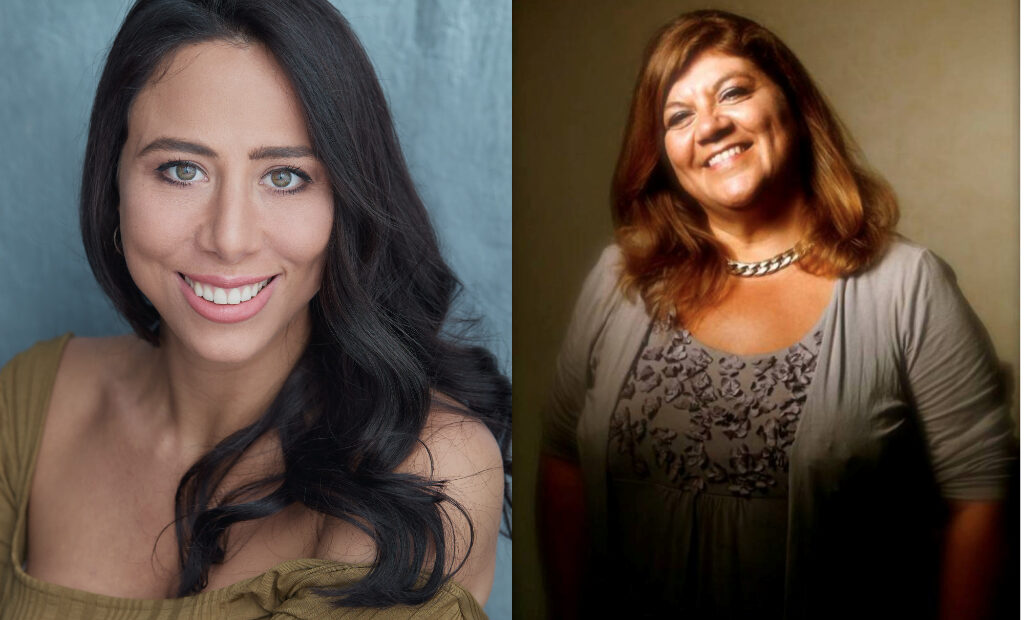
In August 2020, Beirut experienced the largest non-nuclear blast in history, causing shockwaves all over the city and right across the world. Whispers International was set up as a fundraising initiative to help raise money for cultural centres affected by the explosion and support a generation of theatremakers who would otherwise have been lost without their livelihoods.
We had the pleasure of speaking with the project’s co-producers, Agatha Ezzedine and Josyane Boulos, to learn more about the emotional journey the pair embarked on to bring their vision to life.
The world went through a really tough year in 2020, made worse by the economic crisis that began as a result of the Covid-19 pandemic. For Lebanon, the tragedy was threefold, following the August blast that destroyed all of Beirut’s theatres. How does one come to terms with such horrific events? Has the city been recovering since then?
Josyane Boulos: The explosion has shattered our lives, our homes, and our hopes. I personally felt intense shock, confusion and fear, and was overwhelmed by a host of conflicting emotions. Round-the-clock news, social media coverage, or just walking in the streets meant that we were bombarded with the horrific images of the tragedy. Till this day, justice has not been served, and the perpetrators of the explosion have still not been revealed to the world. The theatres in Beirut were destroyed and rebuilt through private funds like the Whispers-Hamasat action. It became urgent to re-establish routine. That is one of the main reasons why I accepted the challenge of Whispers [the play], which was put together during the intense economic crisis, the pandemic and the aftermath of the explosion. I had the intuition that it would help me. I was disconnected from my feelings. It seemed like the right thing to do to avoid experiencing my emotions, but they exist whether I am paying attention to them or not. Even intense feelings will pass if you simply allow yourself to feel what you feel. And that is what happened during rehearsals, filming, and editing. Working with my friends and colleagues from the theatre helped me to exteriorise my emotions. As our director Lina Abiad said: “We thought we were helping the theatre, but in fact the theatre helped us”.
This production was a collaborative process between British playwrights and Lebanese artists. Could you tell us more about the partnership?
Agatha Ezzedine: The first step in the creation of Whispers was contacting the British playwrights. They had all heard of the devastating blast in Beirut and they were very happy to donate their texts to the cause, free of charge. Six talented playwrights offered us a total of 18 texts, out of which we picked seven, based on their adaptability to the Lebanese audience. It was very empowering and comforting to us, as Lebanese artists, to feel all this wonderful support from British artists during this very difficult time.
Kim Hardy’s Job Interview is particularly eye-catching as it offers a glimpse into what life in a post-pandemic world could look like. How do you think the theatrical landscape will look on the other side of this crisis?
AE: In my opinion, nothing compares to sitting in a theatre and experiencing that beautiful exchange of energies between you as the audience and the actors on stage. You can have a hundred strangers sitting in a dark theatre, all laughing and crying together, and collectively experiencing a journey that transports them outside their daily lives. I think this is one of the most beautiful moments a human being can experience. Yes, of course, online plays have been very useful in closing the gap during the pandemic, and i watched some brilliant online performances that moved and touched me deeply, but I do hope that real-life theatre will come back, once permitted, and that it won’t be replaced by online shows.
What was the selection process like for the actors?
JB: We started by making two lists: one of the most internationally renowned Lebanese actors and another of young emerging talents – in order to create a mix – and I started calling them. It was amazing how positive the responses were. Only the actors who had prior engagements shooting a series or being abroad apologised; some of them still participated by sending us footage for a chance to appear as cameos. It felt like all of them were eager to be back on stage! We sent them the selection of texts, and each one chose the monologue that he or she liked. Allow me to present them by order of appearance: Dory Al Samarany, Bernadette Houdeib, Sany Abdelbaki, Agatha Ezzedine, Bshara Atallah, Nada Aboufarhat, Talal el Jurdi, Georges Khabbaz, Nadine Labaki, with a special appearance by Hagop Der Ghougassian, Josyane Boulos, Badih Abou Chacra and Rita Hayeck. And everybody volunteered!
What challenges did you face during rehearsals?
JB: Our solidarity brought a breeze of hope that was tremendously welcome. We rehearsed and filmed the play at the Black Box Theatre, which had become windowless after the blast. But we didn’t care; we covered everything with plastic sheets and carried on. During filming (directed by Farah Chaya), although we had picked a Sunday to avoid external sounds, we had to go out many times to ask the people passing by to lower their voices, ask the children to stop playing under the theatre windows, or tell the football fans watching TV to restrain their cries of joy! Because of the pandemic, we rehearsed in shifts, avoiding the “crowd” as much as possible, even though everyone wanted to be together and offer a helping hand in the process. The synergy was amazing. Of course, we took all the necessary sanitary precautions that go with Covid-19 and the place was continuously sanitised.
Which cultural centres will benefit from the proceeds raised by this production?
JB: We made a list of all the damaged theatres in Beirut. We had online meetings with the managers who gave us detailed reports of the damages and how much it would cost to repair them. We raised 70 million Lebanese pounds (value: $8000 in November, $5600 today) that we divided accordingly. Below is the detailed chart:
Tournesol | LBP 4,000,000 | |
Trianon | LBP 4,000,000 | |
Ipeguian | LBP 5,500,000 | |
KED | LBP 6,800,000 | |
Laban | LBP 7,700,000 | |
Madina | LBP 10,000,000 | |
Black Box | LBP 11,000,000 | |
Monnot | LBP 21,000,000 |
The monologues address very important issues, such as mental health and women’s rights. How vital do you think the creative industries are in showcasing social justice?
AE: I think the creative industries like theatre and film play a paramount role in showcasing social justice because they humanise the problem at hand. They allow the audience to zoom in on a character’s life and really witness how they’re impacted on the daily by issues such as gender or racial inequality, LGBTQ+ discrimination, political injustice, and lack of access to civic participation, among other things. Additionally, there are topics that people feel are too sensitive to discuss in conversation, matters that would be better off addressed in a play or a film. The audience then becomes more informed about the problem, even if they didn’t experience it first-hand, and they often walk away feeling moved and ready to take steps towards positive change.
As well as producing, Agatha, you are also an accredited actress and writer. How would you say your move to London has shaped your career?
AE: As I always say, my move to London is one of the best decisions I made in my life, and I’m still grateful for it every day. London is the capital of theatre, and working and studying here has allowed me to be surrounded by some of the most skilled and talented creatives in the world. Working with these brilliant talents has really shaped my style into what it is today, and taught me to find truth in every moment so that my work always remains organic, whether as an actor, writer or producer. While studying in London, I was introduced to the Sanford Meisner acting technique, which revolves around “living truthfully under imaginary circumstances”, and that was a turning point in my work. There’s also the rich networks that working in London offers a creative – I’ve met a very large number of artists and we are all so supportive of each other’s work, which helps us tremendously with navigating the ups and downs of a creative career.
What is next for you both in terms of future projects?
JB: I am personally rehearsing for a play, hoping to perform in September. I am also intensively working on the Whispers funds. The first showing of Whispers took place on 7th November 2020 on YouTube and had a very positive response. But we felt it wasn’t enough. Once the theatres open up again, we need to fill them with new productions. Talented artists are being driven out of the creative industries and out of the country in order to simply survive. Lina, Agatha and I decided to add French and English subtitles to Whispers and broadcast it again on the 24th April 2021. The money raised will be used to create the Whispers Fund, which will sponsor the new generation of artists in their productions, to keep the Lebanese theatre alive.
AE: I would love to build on the wonderful experience of Whispers and do some more work in Beirut. I have a couple of very exciting plays in the pipeline, and I’m currently writing my feature film, which i am hugely passionate about and hope to start shooting in a year or so!
What advice would you give to creatives who are just beginning their careers in the arts?
JB: They are not alone. It’s a marathon, not a sprint. The road is bumpy, full of potholes. It takes a lifetime to develop a talent and anyone who tells you otherwise is just lying. They will often be discouraged, ready to give up at the beginning. Don’t give up. Just try harder.
Educate yourself. Never stop learning. Intelligence is the foundation of great art. And go see plays. A lot of them. Live or online. Feed yourself with other actors’ works.
And remember the older generation (like me!) is here to give you a hand. So do not hesitate to ask for advice.
AE: Be patient and try to always work on projects that you care about as this is where you will do your best work!
Ghazaleh Golpira
Whispers was released on YouTube with subtitles on 24th April 2021. For further information or to book visit here.
Watch the trailer for Whispers International here:

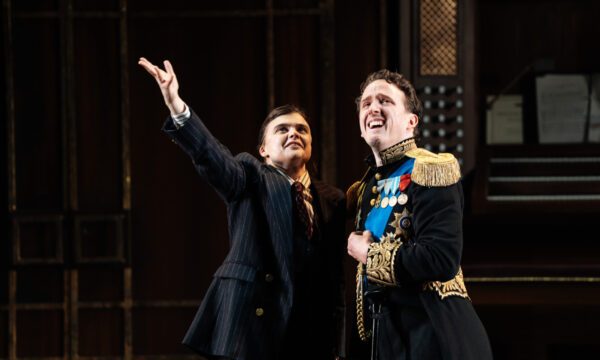






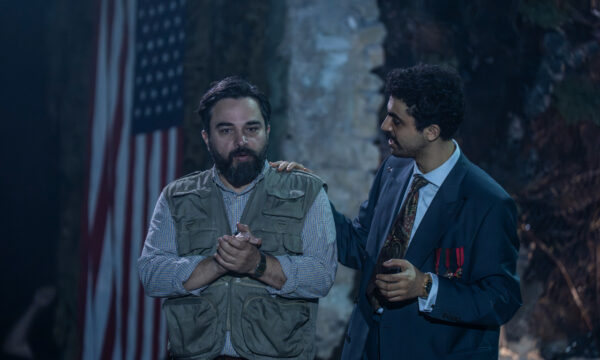





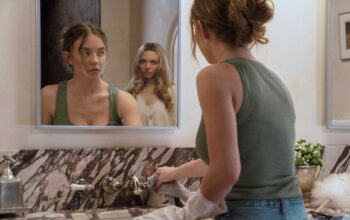
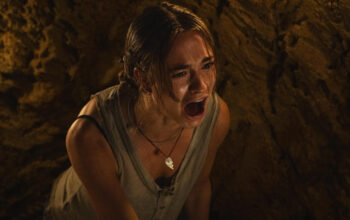

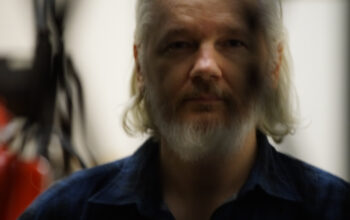







Facebook
Twitter
Instagram
YouTube
RSS